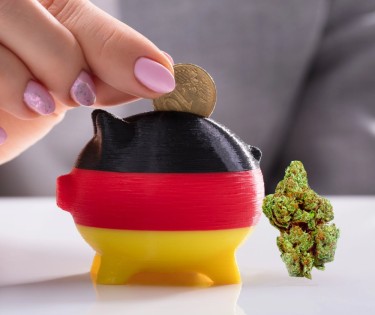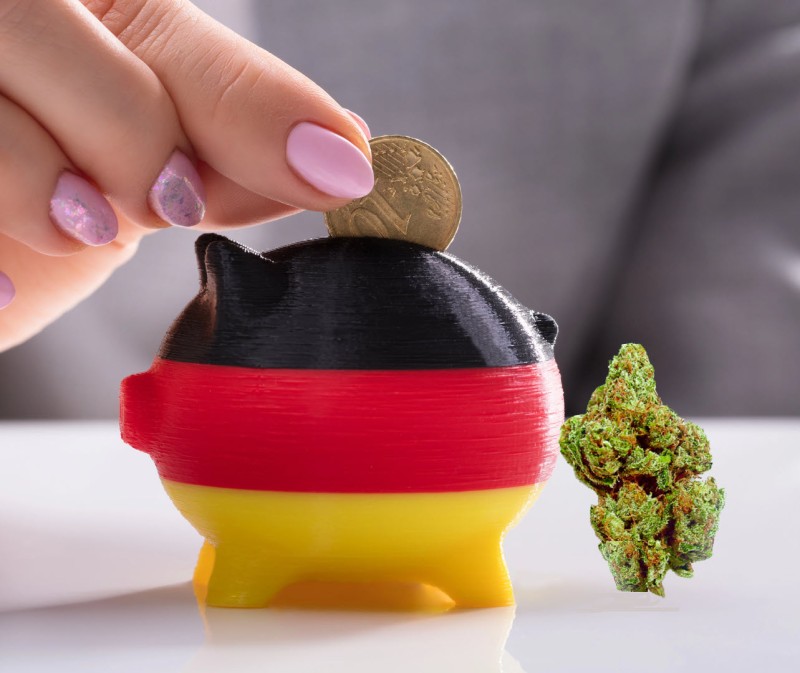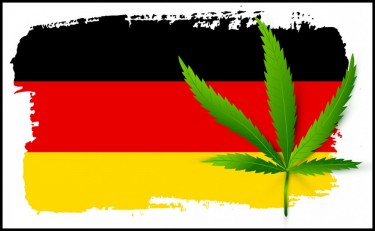
Medical marijuana company Bloomwell Group GmbH has released a new report on Germany's private medical marijuana market. This Frankfurt-based company serves as the central hub for medical cannabis distribution, consultations, and treatment. This includes services like telemedicine and dispensing. The report comes after major cannabis reforms in Germany with the implementation of the Cannabis Act (CanG).
When partial cannabis legalization took effect in Germany on April 1, it allowed adults over 18 to legally possess up to 25 grams of dried cannabis and cultivate up to three plants at home. One of the biggest changes under this law is that medical cannabis is now regulated much like ibuprofen.
After the reclassification of medical marijuana as a non-narcotic, the price for medical marijuana flower initially rose slightly. However, prices quickly stabilized and then dropped in June. More importantly, patients are now paying about half the price for medical marijuana prescriptions compared to what they paid at the beginning of 2023.
Data Collection and Market Analysis
Niklas Kouparanis, CEO and co-founder of Bloomwell Group, stated, "Through the Bloomwell platform, which is the largest of its kind in Europe, we have been able to gather and analyze a significant amount of data on medical cannabis prescriptions, patient preferences, and the market as a whole."
Thanks to imports from more than 20 countries, with the majority coming from Canada, Germany has a steady supply of cannabis to meet increased demand. This has also led to an immense variety of flower strains available to patients and physicians. However, as the market continues to grow, Germany will need to increase the amount of cannabis imported. Bloomwell Group projects that Germany will become the number one medical cannabis market in the world.
Key Findings from the Report
The report's findings are based on Bloomwell Group's internal data and analysis of tens of thousands of prescriptions dispensed via its medical cannabis platform from January 2023 through June 2024. Here are some of the highlights:
-
Variety of Cannabis Strains: Patients now have access to a greater variety of cannabis flower strains than ever before. In June 2024 alone, pharmacies dispensed a total of 237 different varieties of medical cannabis flower strains via the Bloomwell digital platform.
-
Cost of Medical Cannabis: Over 50% of the medical cannabis flower prescribed is classified as "inexpensive" or "very inexpensive." The average price per gram is less than 9 euros ($9.73). For comparison, in the U.S., the average price per gram for medical marijuana flower ranges from $10 to $20, according to data from Nuggmd. Some varieties that cost 10 euros per gram at the beginning of 2023 are now priced at 5 euros per gram.
-
THC Potency: Prescribed medical cannabis flower averages a potency of just over 20% THC.
-
Irradiated vs. Non-Irradiated Flower: Patients and doctors can choose between cannabis flowers that are either irradiated (treated to eliminate potential microbial contaminants) or non-irradiated. The data indicates that a slight majority of patients prefer non-irradiated flower. Since the beginning of the year, the ratio of irradiated to non-irradiated flowers has been relatively equal.
The Current Situation of Cannabis in Europe
Cannabis remains the most commonly consumed illicit drug in Europe. According to national surveys, an estimated 8% of European adults (22.8 million aged 15 to 64) have used cannabis in the last year. However, the levels and trends of use vary across different countries. Around 1.3% of adults in the European Union (3.7 million people) are daily or almost daily users of cannabis. This group is most likely to experience problems associated with cannabis use.
Diversity of Cannabis Products
The increasing range of cannabis-based products, including edibles, high-potency products, and various derivatives, complicates the evaluation of harm. This diversity can impact the risk of experiencing problems with cannabis use. Hence, this area requires more research and regulatory attention.
Seizures of cannabis products remained historically high in 2022, indicating the high availability of this drug. However, the total quantity of cannabis resin seized in the European Union dropped significantly, mainly due to a decrease in seizures reported by Spain. This may reflect an adaptation in supply routes by traffickers as a response to anti-trafficking measures taken by Spanish authorities.
Since 2019, the volume of herbal cannabis seized has increased significantly in Spain. In 2022, Spain accounted for 69% of all resin seized, 47% of all herbal cannabis seized, and 81% of the total number of cannabis plants reported seized in the European Union. This highlights Spain's significant role as both a transit country for cannabis trafficking and a production area.
Understanding the Need for Effective Responses
There is a pressing need to understand better the potential harms associated with different patterns of cannabis consumption. This understanding is crucial for policy and practice implications. With the ongoing debate on how best to respond to cannabis use, some countries are modifying their regulatory approach. The aim is to identify appropriate referral pathways and effective treatment options for those with cannabis-related problems.
The reforms and changes in Germany's medical marijuana market have made cannabis more accessible and affordable for patients. With the steady supply from international imports and the wide variety of strains available, the market is set to grow even further. The Bloomwell Group's data-driven approach helps ensure that patient needs and preferences are met, positioning Germany to potentially become the leading medical cannabis market in the world.
As the cannabis market continues to evolve, ongoing research and regulatory attention are necessary to mitigate the potential harms and ensure effective treatment for those in need.
THE GERMAN GREEN WAVE HAS JUST BEGUN, READ ON...
GERMANY LEGALIZES RECREATIONAL MARIJUANA, WHAT SHOULD YOU DO?






